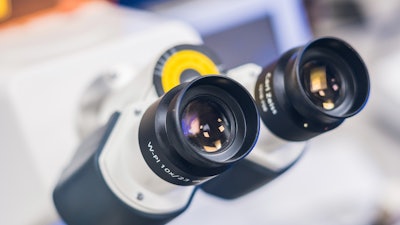
Researchers at University of Buffalo in New York are exploring novel therapies like injecting human dental pulp stem cells into damaged teeth to restore them, which may upend the way dental care is delivered, according to a school news release.
Additionally, the new treatment may reduce the need for invasive root canals, according to the release.
"The standard of care in dentistry today -- fillings and implants -- is still quite outdated, as it is based on the use of synthetic materials only," Dr. Camila Sabatini, an associate professor of restorative dentistry at the university, said in the release. "We are looking to increase our understanding of the biology of the host, so we can identify potential avenues for tissue repair."
Sabatini, who was awarded a $420,000 four-year grant for the research she will conduct with a colleague, will investigate using dental pulp stem cells obtained from extracted human molars in conjunction with an immunostimulant drug used in cancer therapy and gene therapies to treat infected teeth.
Animal studies will involve artificially inducing tooth defects and treating them with this therapy. The results of those trials could move this new treatment one step closer to regulatory approvals by the U.S. Food and Drug Administration and, eventually, in clinical practice, according to the study.
Sabatini's research could make root canals a thing of the past, which could not only treat an infected tooth but could reduce the risk of future fractures.
"The possible impact of this research is profound," said Frank Scannapieco, a distinguished professor of oral biology at the State University of New York, who will serve as Sabatini's adviser. "These innovative technologies have the potential to be widely applicable and cost-effective, ushering in a significant paradigm shift in dental care."



















